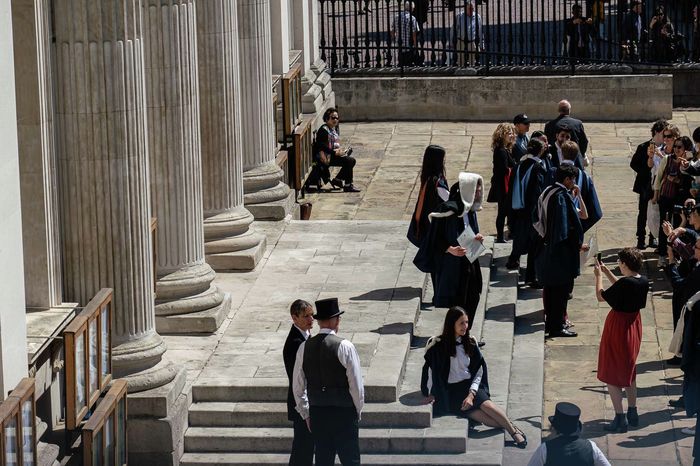Transition year announced for 2021-22 exams
The announcement follows the preference of Faculties and Departments to move away from traditional examination methods

Students will be examined through a “mixed model” of assessment methods in the 2021-22 academic year as part of a “transition year,” it was announced today (19/05).
Today’s edition of the Cambridge University Reporter provides details on the transition year, under which students will not be examined solely through the traditional three-hour in-person exams of previous years, rather, faculties and departments will have the option to adjust their assessment methods.
The accompanying documents note that the change will allow “Faculties and Departments time to continue using some of the new modes and methods of assessment” and will “support those Faculties and Departments that do not wish to return to their established modes and methods of assessment, preferring to continue with the transition to more diverse and permanent changes where appropriate.”
The transition year will allow for analysis of results which will ensure that “modes and methods of assessment adopted do not disadvantage any student” in the future.
The Examinations and Assessment Committee (EAC), which supported the suggestion, emphasised that the aims of the transition year should include “working with Faculties and Departments to close the awarding gaps for Black British students and those with declared mental health disabilities, as committed to the Office for Students (OfS) in the University’s Access and Participation Plan.”
The plans assume that no Covid-19 restrictions will be in place, as adjustments to examinations as a result of the pandemic are covered by emergency measures on a University level.
The account of the plans also note that the transition year will “draw on the lessons learned as a result of the University’s response to the Covid‑19 pandemic, and responds to the desire of many Faculties and Departments to move away from the traditional three-hour written examination format as the primary means of assessment for such programmes.”
Earlier this year, Senior Pro-Vice Chancellor for Education, Professor Graham Virgo, outlined eight forms of mitigation measures which Faculties and Departments may choose to adopt for the Easter 2021 exam series.
This included reducing the number of required questions and increasing choice of optional questions in examinations, excluding students’ lowest marks in the calculation of their class, adjusting the duration of the exams, or replacing the exams with coursework.
Under the framework for 2021-22 examinations, 6-hour examinations will no longer be an option as this time frame did “not adequately accommodate the examination access arrangements for some disabled students.”
 News / Hundreds of Cambridge academics demand vote on fate of vet course20 February 2026
News / Hundreds of Cambridge academics demand vote on fate of vet course20 February 2026 News / Judge Business School advisor resigns over Epstein and Andrew links18 February 2026
News / Judge Business School advisor resigns over Epstein and Andrew links18 February 2026 News / Petition demands University reverse decision on vegan menu20 February 2026
News / Petition demands University reverse decision on vegan menu20 February 2026 News / CUCA members attend Reform rally in London20 February 2026
News / CUCA members attend Reform rally in London20 February 2026 News / Caius students fail to pass Pride flag proposal20 February 2026
News / Caius students fail to pass Pride flag proposal20 February 2026











